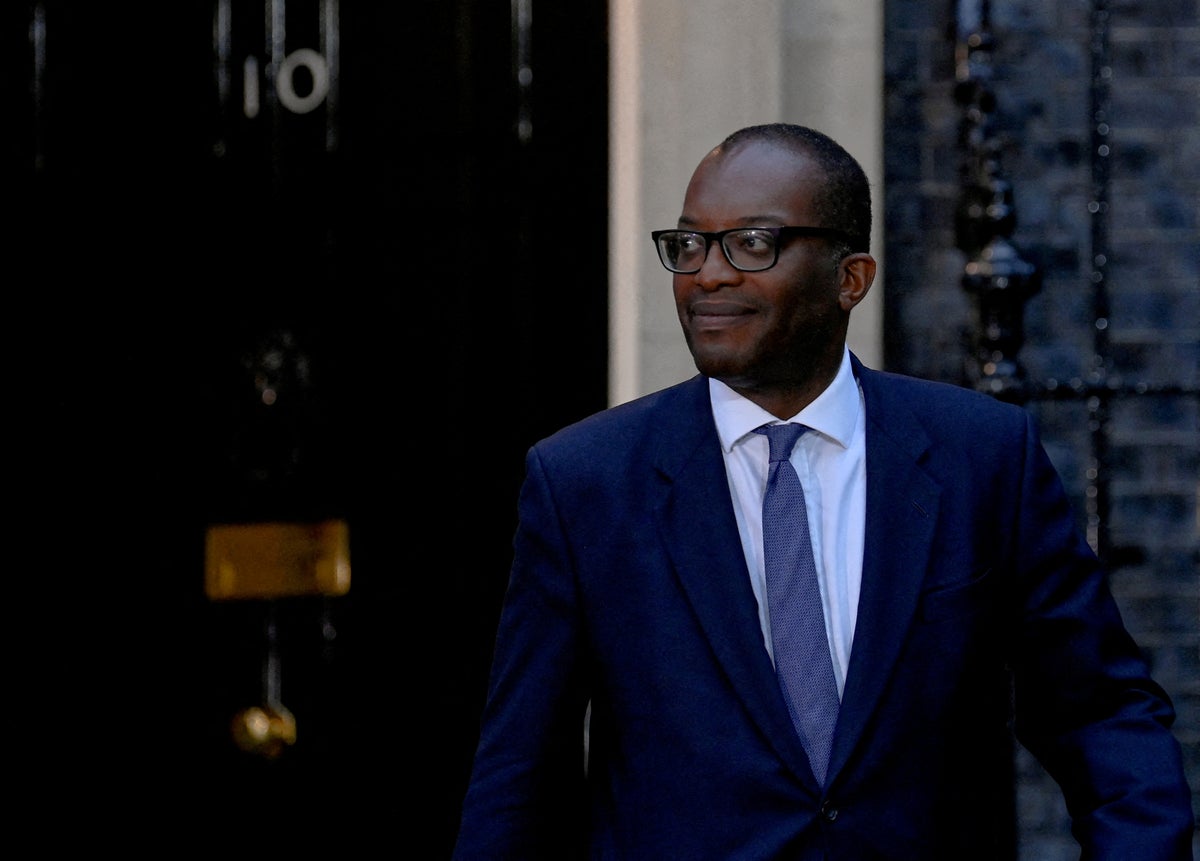
Kwasi Kwarteng’s huge tax cuts will add less than 0.1 per cent to GDP each year, a new analysis is warning – while costing £82bn in debt interest alone over five years.
The chancellor’s plan – which has forced the Bank of England to intervene to calm market turmoil – will fail to haul the UK’s stagnant economy up to his target of 2.5 per cent annual growth, the study warns.
Instead, it amounts to “all pain, little gain for the UK taxpayer and our economy”, concludes the Tony Blair Institute (TBI) and Oxford Economics, a leading independent advisory firm.
The package, of £45bn of unfunded tax cuts mainly for top earners and big business, will generate only £6bn in extra receipts, the report says – “leaving a yawning fiscal deficit”.
“Our forecast suggests that the plan will boost growth by less than 0.1 per cent per year between now and 2027-28,” said Ian Mulheirn, TBI’s chief economist.
“The tax giveaway will also pile on £82bn in debt interest costs for the government over the same period. This additional debt interest alone is worth almost twice the cost of the entire HS2 rail project.
“Put plainly our forecast demonstrates that the government’s growth plan is all pain, little gain for the UK taxpayer and our economy.”
Mr Kwarteng is battling for his political future after what some Tory MPs are calling his “disastrous” mini-Budget, which has crashed the pound and created a “material risk to financial stability”, the Bank says.
Ahead of it, he raised eyebrows by telling Treasury officials they must aim to return economic growth to an annual rate of 2.5 per cent – a level not seen since the 2008 financial crash.
The market mayhem has been fuelled by the chancellor’s refusal to allow the Treasury watchdog, the Office for Budget Responsibility, to analyse the package, funded through massive extra borrowing.
The TBI and Oxford Economics study seeks to step into that gap, concluding growth will reach only around 1.7 per cent per year – with that 0.1 per cent increase – way short of 2.5 per cent.
Separately, it finds the two-year freeze on household energy bills, at an average of £2,500 a year, will reduce a forecast GDP fall over the next year from 2 per cent to 0.6 per cent.
It will cost £66bn over the next six months, £78bn in 2023-24 and £21bn in 2024-25 – but with a significantly lower net cost by “mitigating the impact of the recession”.
Liz Truss is under pressure to rethink the mini-Budget – from Labour, some Tory MPs and mortgage lenders – after it was attacked by the International Monetary Fund.
Keir Starmer said the plan to announce new fiscal rules to get debt under control in November, was too late for people “very, very worried” about rising mortgage rates and inflation.







